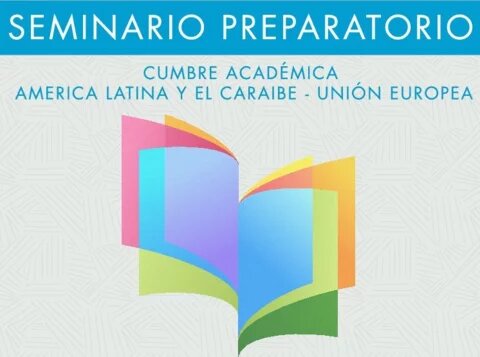The importance of strengthening the links between universities, research and company, and the need to develop a system of accreditation and homologation of studies between the European Union, Latin America and Caribbean again became evident during the seminar held during 26th and 27th May in Romania, as part of the process of preparing for the II bi-regional Academic Summit next year in Belgium.
Romanian Minister of Education, Remus Pricopie, and Romanian Minister of Foreign Affairs, Titus Corlatean, inaugurated the seminar, organized by the University of Bucharest through the Institute of Latin American Studies and supported by the Executive Secretary of the Permanent Academic Forum (FAP) comprised of the Institute of the Americas in France (IdA) and the Latin American Centre for relations with Europe (CELARE); and the EU-LAC Foundation.
Already in the opening session, Annick Castiaux, from University of Namur, member of the organizing committee of the II Academic Summit, proposed to hold this event in parallel to the projected Business Summit, thus involving enterprises in the search for ways which will enable the educational system to meet the needs of an increasingly flexible, dynamic and qualified labour market.
IRELAC President, Christian Ghymers, stressed, as far as the university-company cooperation was concerned, according to figures from the Interamerican Development Bank, both Latin America and the EU are undergoing and involution, hence the urgency of a strategic shift at the universities, which urged them to operate "not towards the inside, but towards the outside".
He expressed the opinion that aspiration should not be the model of the triple helix-university research and company-it is time to talk about a fourth helix, based on international cooperation and social responsibility of universities.
Micaela Hierro, from the Research and Training Centre for Social Entrepreneurs of Argentina presented a study on youth employment and entrepreneurship which confirmed that it was possible to establish a constructive dialogue between the Academy and the industry that can benefit both parties and therefore, the society.
Héctor Casanueva, from the Central University of Chile, spoke of mobility schemes for university students to highlight the need to encourage them, especially in Latin America and the Caribbean, where the mobility is 150. 000 students per year.
"The EU, by contrast, has mobilized, between their member countries, up to three million students, a figure expected to increase to five million with the Erasmus Plus program," Casanueva said during the seminar, which was open to all universities and public and private EU and CELAC research centres.
The executive director of the EU-LAC Foundation, Jorge Valdez, spoke about the initiative of the Common Area of the Higher Education, and pointed out that it has joined the process of academic peaks, even though it still remains prior to the creation of the Foundation, recognizing that higher education is a fundamental pillar of the strategic association and stating that he believed it was imperative to go beyond the mobility of students and to set up common processes.
There was an agreement on the need for the Heads of State and Government to transform the advocated wishes into specific actions and that the advance of the cooperation that Romania has made with a start-up of Master studies at bi-regional level, should not be just an isolated example.
The seminar concluded with the holding of workshops, in which participants discussed mapping of the academic and scientific cooperation, rules and shortcomings of European mobility programs of university students, such as Horizon 20120 and Erasmus Plus, the balance between basic research and applied research and tripartite collaboration: university-companies-public sector as a tool for innovation, competitiveness and growth.
The next preparatory seminar of an Academic Summit will be held in autumn in Guadalajara, Mexico, starting from a common consideration: in order to implement the Common Area of Higher Education EU-LAC, it is essential to design tools to facilitate the contact between universities and companies in Latin America and the European Union and to launch joint programs that go beyond its goal of mobility and institutionalize international cooperation in this area.
